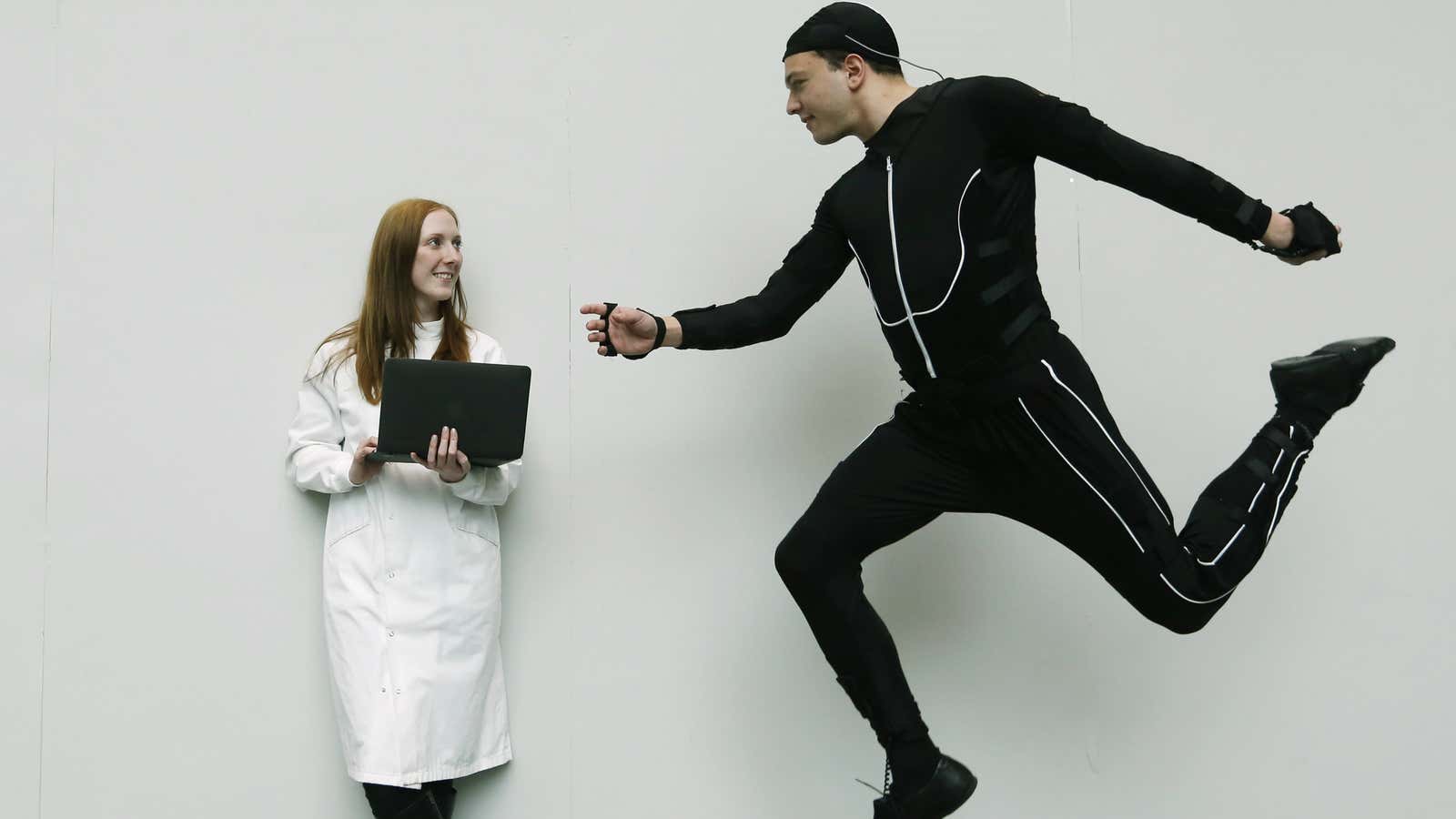It’s difficult for many to succinctly sum up several years of intricate work, but it doesn’t have to be so hard. So the next time a PhD student is asked to explain their work, they should answer with a dance. Hundreds of other scientists already have.
Dozens of PhD students from a variety of scientific discipline enter the annual competition—the “Dance your PhD” contest is now in its eighth year—in hopes of winning $2,500 in prizes and a trip to Stanford University in Palo Alto, California. There are four categories: physics, chemistry, biology, and social sciences, with the best dance overall awarded the trip to Stanford.
This year’s winner combines hip-hop, salsa, and acrobatics to explore the relationship between policies and effective water protection. Florence Metz, of the University of Bern in Switzerland, is the first winner of the social sciences category to win the top prize.
In the video, the different dancing styles represent different political groups, which fight over how to achieve effective water protection policies. The final choreography incorporates styles of all the dance groups, which illustrates the impact of dialogue in creating successful water policy.
Metz scooped the top prize from 31 other submissions this year. This year’s biology category was awarded to Pearl Lee, from the University of Sydney, who showcased her ballet skills to explain her PhD research on a molecule called tropoelastin.
The physics prize went to Merritt Moore, from Oxford University, who explored the properties of quantum mechanics with a tango.
And the chemistry prize was awarded to Jyaysi Desai, a PhD student at Ludwig Maximilian University of Munich, for an elaborate Bollywood dance to explain the role of the innate immune cells—called neutrophils— in dealing with different diseases.
Previous winners have included an interpretive dance to explain sperm competition.
And who says academics are out of touch with the real world?
